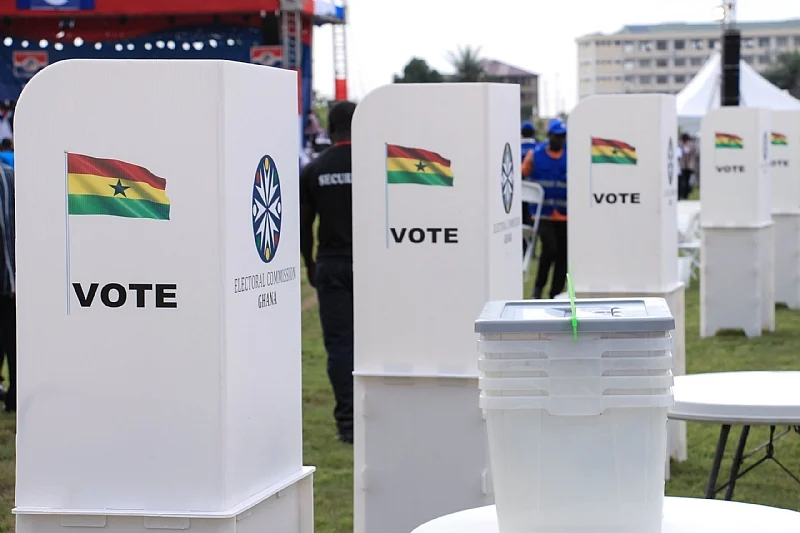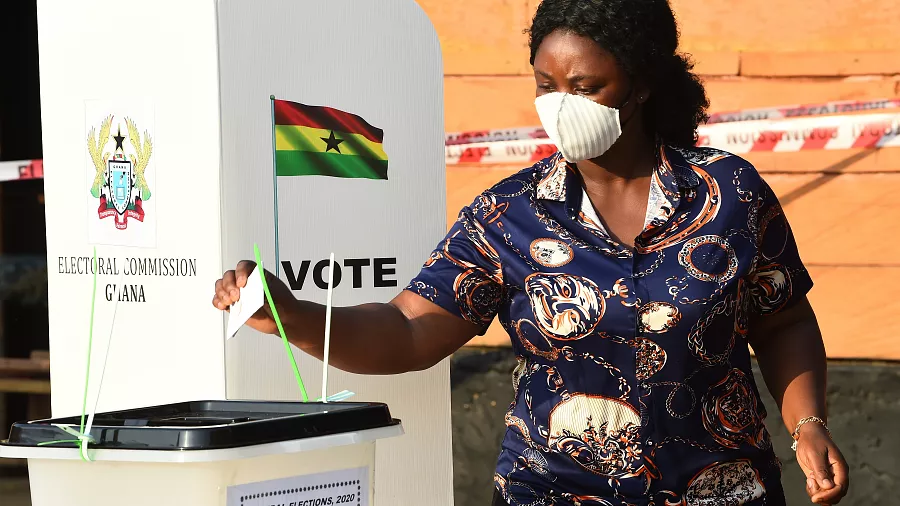In navigating Ghana’s intricate political landscape, the level of education of voters is emerging as a crucial factor—potentially tipping the scales between victory and defeat in the next election.
The latest national tracking poll by Global InfoAnalytics has peeled back the layers of voter behavior across the country’s 16 regions, offering what Executive Director Mussa Dankwah called a revealing insight that “could shape the future campaigns and how the political parties engage voters in the regions.”
At the heart of this emerging data is a growing gap in educational attainment across different regions—one that appears to be influencing how voters process political messaging, react to propaganda, and ultimately decide at the ballot box.
In particular, the Ashanti Region—long considered a political stronghold—presents a curious case.
Dankwah observed that although the region has the highest percentage of voters with senior high school (SHS) qualifications, it also records the fewest voters with tertiary-level education.
“Nearly 70% of the voters sampled have SHS qualification while only circa 15% have tertiary level qualifications. The region also has the lowest proportion of voters with no formal education, 8%, behind the Central region, which has 5%.”
Mussa Dankwah
He pointed out that, in stark contrast, Bono East emerges as the most educated region, with “the highest proportion of voters with tertiary education, circa 49%.”
Meanwhile, the Savannah Region sits on the opposite end of the spectrum, recording “nearly 43%” of voters with no formal education.

However, there is more beneath the surface. A deeper analysis by Global InfoAnalytics revealed striking regional disparities. In the Ahafo Region, nearly 11% of voters with senior high school (SHS) education do not progress to university.
This figure climbs sharply in the Ashanti Region, where as many as 56% fall off the academic ladder after SHS. In contrast, the drop-off is far lower in regions such as Bono (6%), Central (4%), and Oti (3%).
Dankwah suggested that these figures reveal much about the level of voter preparedness and their potential vulnerability—or resilience—when it comes to political influence and manipulation.
“If you wonder why it is difficult these days for propaganda and voter deception to work, read these numbers carefully. The grounds have shifted as the demography of voters change.”
Mussa Dankwah
Education Divide To Shift Party Strategies
With the dust still settling from the 2024 general election, Global InfoAnalytics also used this poll to explore how voters across educational and regional lines aligned themselves politically.
The numbers were not kind to the opposition New Patriotic Party (NPP) and its flagbearer, Dr. Mahamudu Bawumia.

In regions such as Bono East, Central, Greater Accra, Upper East, Volta, and Western North, Dankwah observed that “less than 80% of NPP voters voted for Dr Mahamudu Bawumia.” In a tight race, that internal drop in loyalty is politically fatal.
Dankwah further highlighted that perhaps the most revealing aspect of the data was the insight into floating voters—often seen as the decisive force in Ghana’s closely contested elections.
“DMB won floating voters in only Ahafo, Ashanti, Eastern, North East regions, while John Dramani Mahama won floating voters in all the regions except in Upper West where majority say they voted for other candidates.”
Mussa Dankwah
Dankwah revealed that while party loyalty often signals a party’s strength, the rate of defection—or perceived betrayal—can be an equally powerful indicator of its vulnerabilities.
“Regions where NPP voters dealt a big blow to their own party were in Bono East where 17% of NPP voters voted for JDM. In the Central region, it was 29%, Greater Accra, 35%, Upper East, 48%, Volta, 33%, and Western North, 44%.”
Mussa Dankwah
Accordingly, Dankwah advised political parties to read the data closely, and more importantly, think about what it means.

He emphasized that in this new era of voter consciousness, the game has changed—and only those who adapt will survive it.
These figures suggest not just dissatisfaction but perhaps a deeper realignment happening within the Ghanaian electorate—an electorate that is becoming increasingly sophisticated, increasingly educated, and increasingly difficult to deceive with mere slogans.
This data could prompt a serious rethink within party campaign machinery. Rhetoric alone may no longer win the vote in an era where voters—especially those with tertiary education—can sift through narratives, challenge data, and hold politicians accountable in real time.
If political parties have learned anything from this, it’s that mass messaging strategies must be recalibrated. Different regions require different approaches, not just in language and tone but in substance.
The Bono East voter is clearly not the same as the Savannah Region voter—nor should they be treated as such.
READ ALSO: GSE Bleeds



















